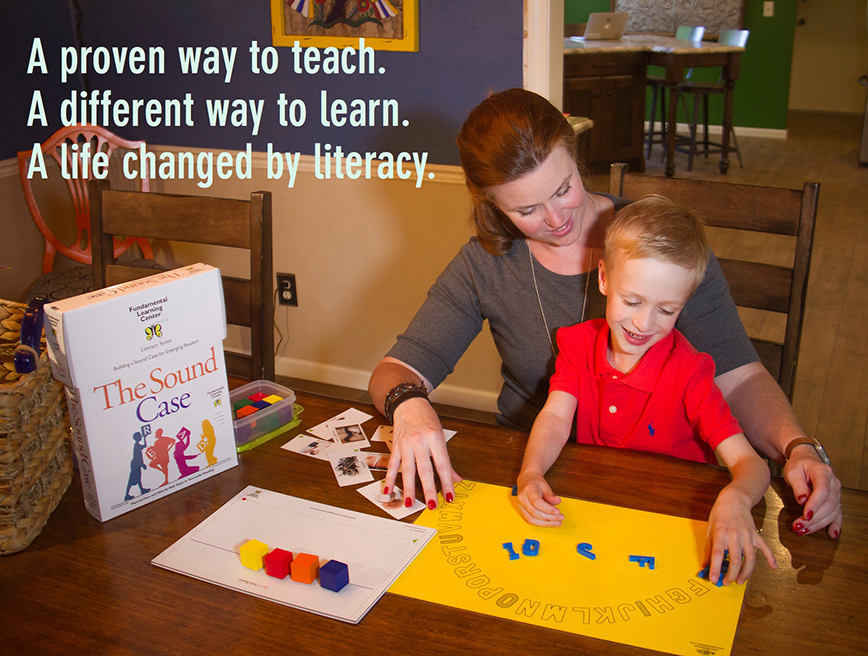Phillips Fundamental Learning Center is a life preserver for children with dyslexia.
There is a national literacy crisis happening. In Kansas, it involves more than 60 percent of children with below-proficient reading skills. Standard classroom teaching methods cannot help many of these students, who have an extremely common and often misunderstood learning disability known as dyslexia.
“One in five individuals across the country, in Kansas, in Wichita, is dyslexic,” says Jeanine Phillips, co-founder and executive director at Fundamental Learning Center. “It is hereditary. It’s being passed down in families with neither parents nor kids understanding what it is. The same thing is true for teachers.
People need to know it’s not a visual problem of seeing words backwards.
It’s a language learning-based problem.
Dyslexics have trouble matching sounds with their corresponding letters (for example, the “sh” sound in the word “shoe”). This hinders their ability to recognize words on paper, understand directions, take notes, and even memorize a phone number or address. Even though research is crystal clear about the fact that dyslexia has nothing to do with a person’s intelligence, children who fall behind academically are likely to feel inadequate.
If you don’t read well, you don’t do well in any subject in school. The feeling of shame sets in very early in children with dyslexia. It impacts every aspect of an individual’s life,” Phillips says.
Phillips has personal experience. It wasn’t until college that she found out she was dyslexic. After her own child was diagnosed, she felt motivated to create a non-profit organization that would provide specialized help to children in the community.
Tackling the problem of dyslexia necessarily requires a different approach to teaching language. Fundamental Learning Center uses hands-on activities proven by research to help switch on the language-decoding part of the brain. Phillips says that intervention is ideal in ages 4-6, when a child starts learning how to read.

Phillips Fundamental Learning Center also provides resources for parents and educators. There are workshops, courses eligible for college credit, and a year-round lecture series with titles such as “ADHD” and “Walk in Their Shoes,” which present a simulation of what it’s like to be dyslexic. “Dyslexia 101” is a monthly, one-hour presentation that shares the most current research and basic facts about dyslexia.
Children are far more likely to succeed academically when parents become educated about dyslexia and provide a voice for them.
